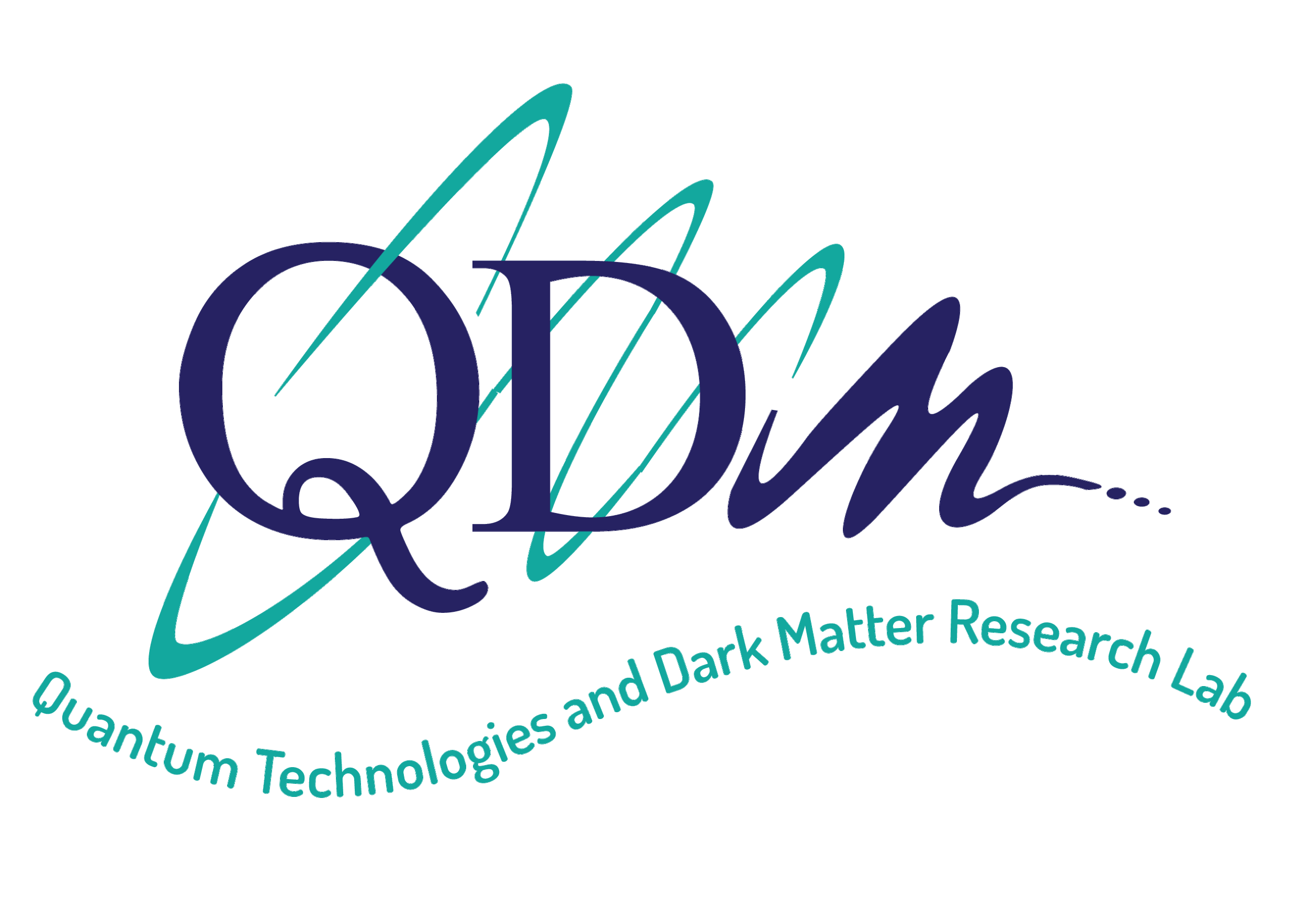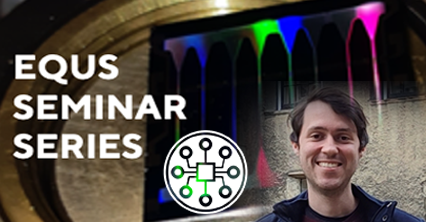
EQUS Seminar Series 2025
Germain Tobar: Detecting single gravitons with quantum-controlled mechanical resonators
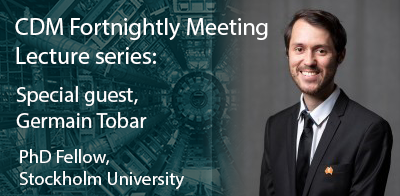
CDM Fortnightly Meeting
Special guest, PhD Fellow Germain Tobar from Stockholm University will be giving a presentation titled "Detecting single gravitons with quantum controlled mechanical oscillators". 💫
Abstract: The quantization of gravity is widely believed to result in gravitons - particles of discrete energy that form gravitational waves. But their detection has so far been considered impossible. Here we show that signatures of single gravitons can be observed in laboratory experiments. We show that stimulated and spontaneous single graviton processes can become relevant for massive quantum acoustic resonators and that stimulated absorption can be resolved through optomechanical read-out of single phonons of a multi-mode bar resonator. We analyse the feasibility of observing a signal from the inspiral, merger and post-merger phase of a compact binary inspiral. Our results show that single graviton signatures are within reach of experiments. In analogy to the discovery of the photoelectric effect for photons, such signatures can provide the first experimental evidence of the quantization of gravity. https://www.nature.com/articles/s41467-024-51420-8
Bio: Germain Tobar completed his honours working on closed time-like curves at the University of Queensland. He then did a masters in theoretical physics under a Cambridge Australia Allen Scholarship before undertaking a PhD at the Stockholm University. Yes, they are related.
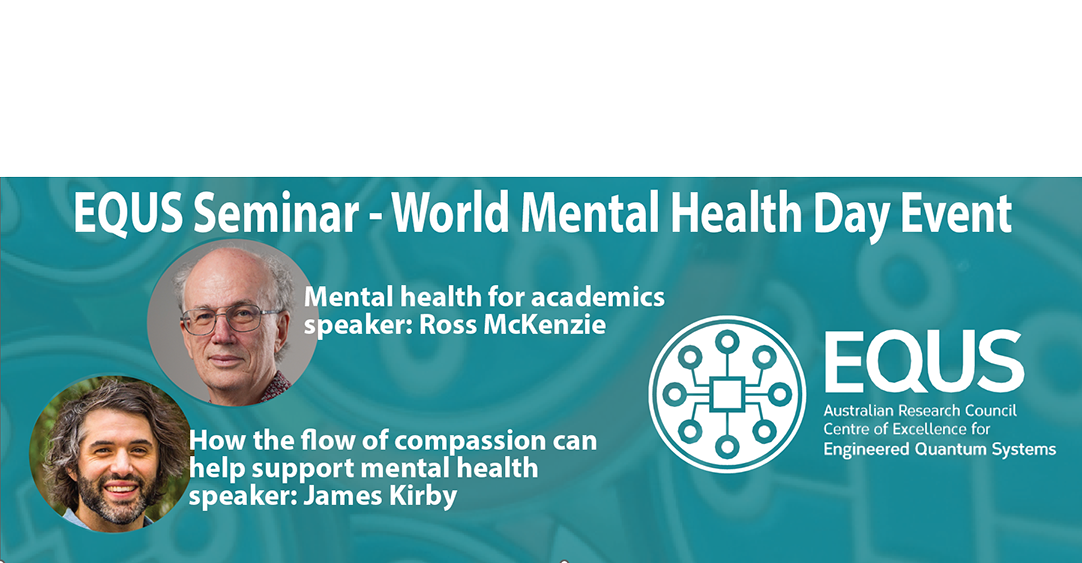
EQUS Seminar - World Mental Health Day Event
Venue: B22 QDM Lab Meeting Room. Morning tea will be served.
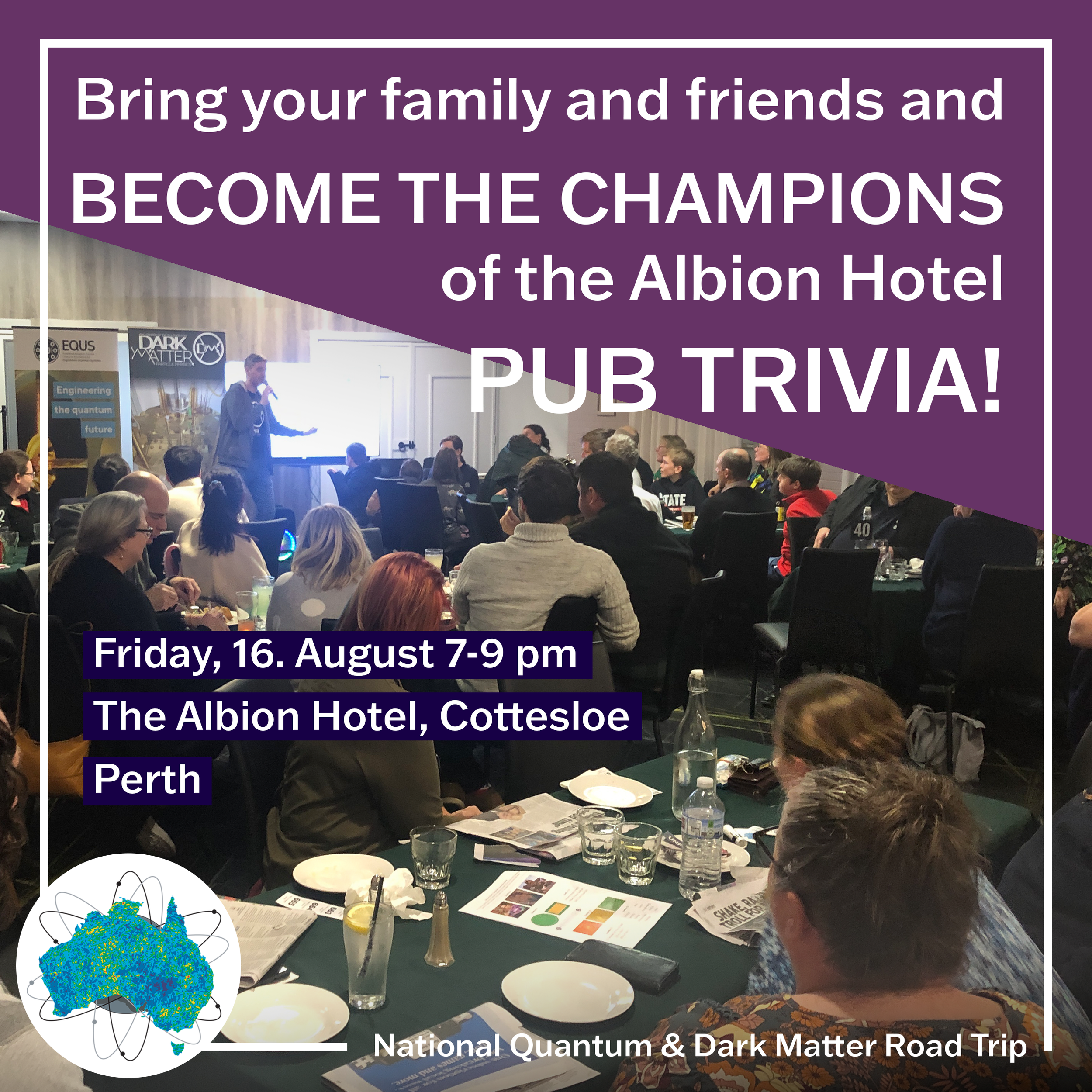
Pub Trivia Night - Albion Hotel, Cottesloe
Join the National Quantum & Dark Matter Road Trip in Perth for an evening of pub trivia, with a twist of science!
Will you be the champions of the Albion Hotel Pub Trivia? Gather your friends and family, get a team together, and come along to The Albion Hotel for a bit of trivia, with a twist of science.
Date: Friday 16 August 2023
Time: 7:00–9:00 pm
Venue: Queen Victoria room, upstairs at The Albion Hotel, 535 Stirling Highway, Cottesloe WA 6011
Don’t stress, our pub trivia won’t bring back nightmares of science exams past! Hosted by road-tripper Will, expect regular pub trivia, but with a science-y vibe, including topics like sport, movies, music, geography, pop culture and general knowledge, and a bonus ‘tomorrow’s science headlines’ activity.
FREE entry, with optional donation to DeadlyScience
Max. team size: 6 people (if you have more people, why not split into two teams and battle it out!)
Win prizes, but more importantly the sweet, sweet feeling of victory!
Please note: There is no lift to the Queen Victoria room, so unfortunately this event is not wheelchair-accessible.
Many thanks to The Albion Hotel for hosting us!
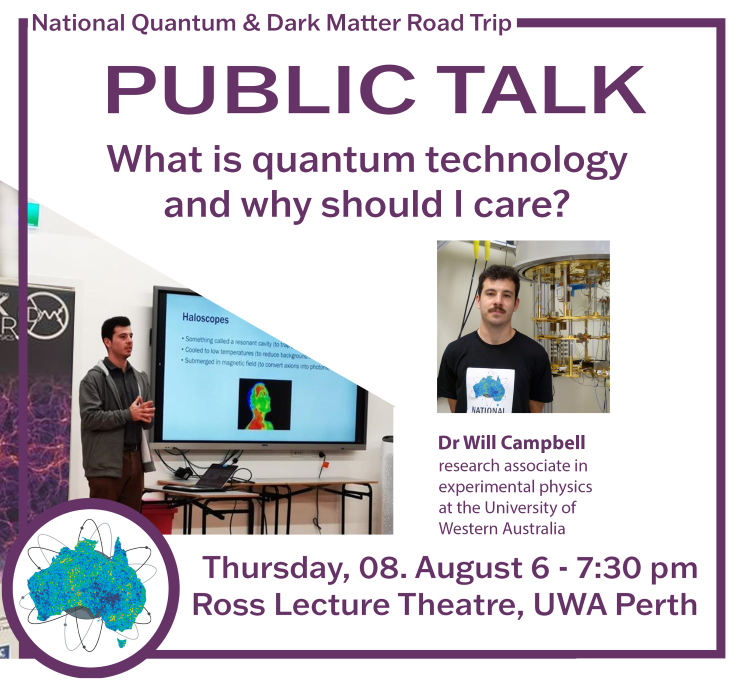
What is quantum technology and why should I care? The weird and wacky physics of single particles, and how it will help us build tomorrow’s technology
The National Quantum and Dark Matter Road Trip Public Lecture
Speaker: Dr Will Campbell
6pm - 7.30pm
Thursday 8 August 2024
Ross Lecture Theatre, Physics Building, UWA
Register to attend : Public talk (Perth): What is quantum technology and why should I care? | Humanitix
What does it mean for something to be quantum? Quantum computing, quantum communication and quantum sensing are all great examples of future technologies that harness the power of quantum mechanics. But what makes these new and exciting capabilities “quantum” exactly? How will they benefit me? What are the challenges in developing these systems? I’ll attempt to answer questions, such as these, you might have about the future of quantum technology. I’ll talk about the current and future directions of Australia’s world-leading involvement in quantum research and how quantum technologies are being used to search for exciting new physics such as dark matter and tiny black-hole collisions, all right here in Western Australia.
Speaker: Will Campbell
Dr William Campbell is a research associate in experimental physics at the University of Western Australia. Having completed an honours in physics as well as his PhD with the Quantum Technologies and Dark Matter Research Labs at UWA, he specialises in the study and application of hybrid quantum acoustic systems for fundamental physics. As well as pure scientific research Will’s interests also lie in the education of quantum physics in schools and increasing the general take-up of STEM-based careers.
We are very grateful to The University of Western Australia for their support of this event.
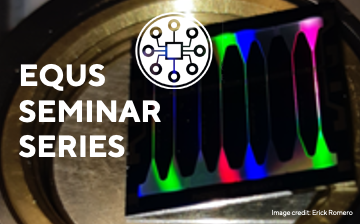
EQUS Seminar Series—International Women's Day
International Women’s Day: Navigating Research as a Woman in Quantum
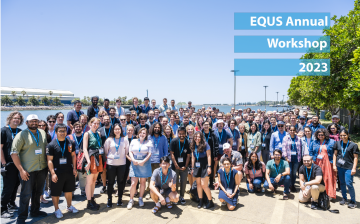
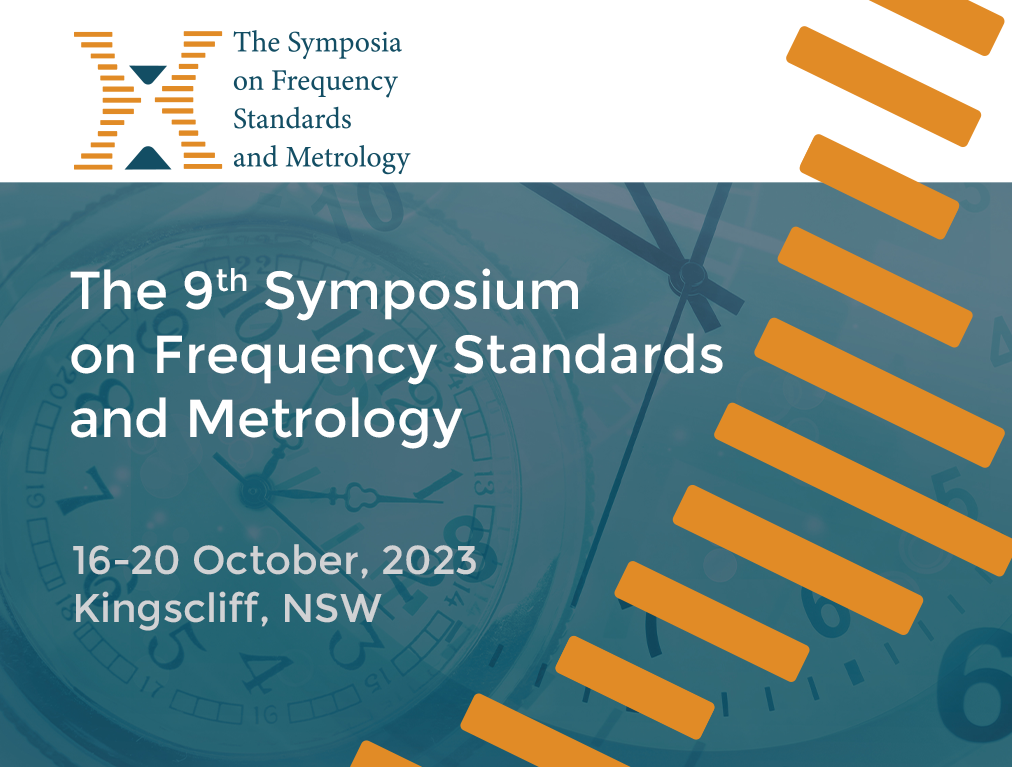
The 9th Symposium on Frequency Standards and Metrology
The 9th Symposium on Frequency Standards and Metrology will be held at the Mantra on Salt Beach Resort, Kingscliff, NSW, Australia, 16-20 October 2023. The symposium is intended to serve as an international discussion forum on precision frequency standards throughout the electromagnetic spectrum, and associated precision and quantum metrology. It focuses on the fundamental scientific aspects of the latest ideas, results, and applications in relation to these frequency standards and measurement techniques. More than Seven years after the last symposium very significant progress has occurred in various associated fields.
For full information please click here
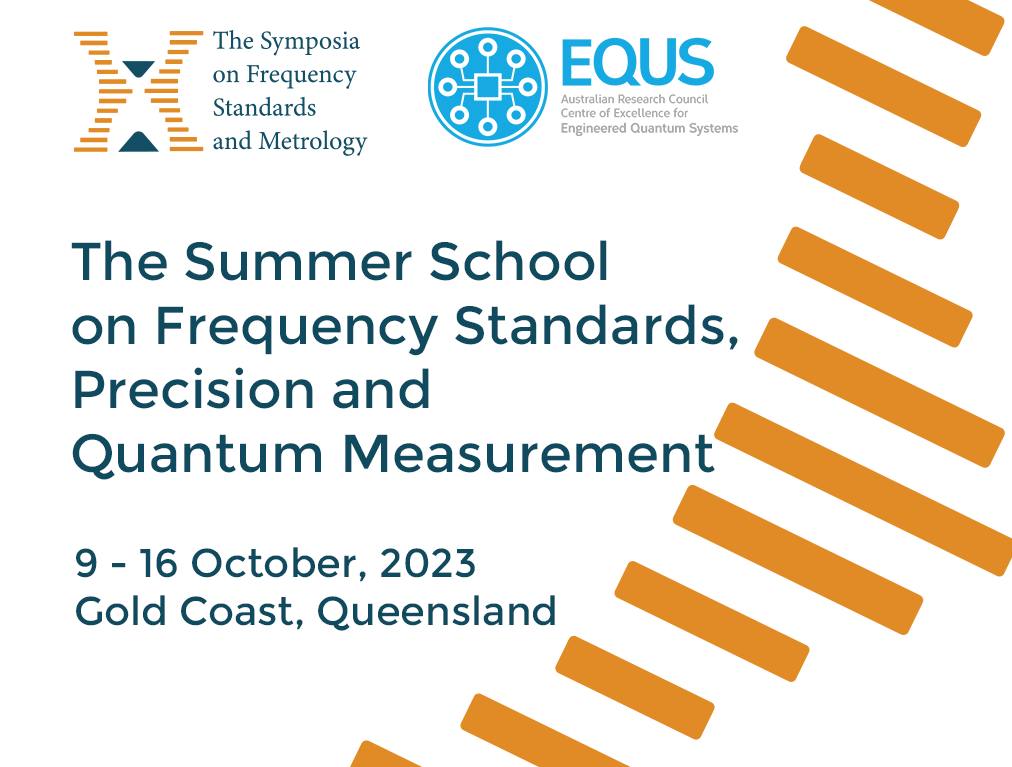
Summer School on Frequency Standards, Precision and Quantum Measurement
The week before the Ninth Symposium on Frequency Standards and Metrology we are presenting a summer school at the Gold Coast on Frequency Standards, Precision, and Quantum Measurements, for students, early career researchers, and those professionals who want to learn more on the subject. The school is limited to 50 participants, and there will be at least twelve tutorial-style lectures during the week, with a half hour for discussions after the tutorial.
For full details head to the 9FSM Symposium Summer School webpage.
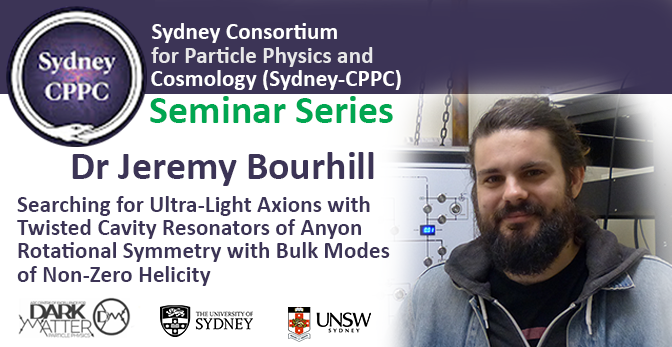
CDM Seminar—Dr Jeremy Bourhill
Searching for Ultra-Light Axions with Twisted Cavity Resonators of Anyon Rotational Symmetry with Bulk Modes of Non-Zero Helicity
Zoom link - see email to CDM member from ciaran.ohare@sydney.edu.au
Abstract
Möbius-ring resonators stem from a well-studied and fascinating geometrical structure which features a one-sided topology; the Möbius strip, and have been shown to exhibit fermion rotational symmetry with respect to a ring resonator with no twist (which exhibits boson rotational symmetry) [1]. A new type of electromagnetic resonator is discussed, appearing as twisted hollow structures using equilateral triangular cross-sections, leading to the realisation of a cavity with anyon rotational symmetry. Unlike all previous cavity resonators, the anyon resonator permits the existence of bulk resonant modes that exhibit non-zero electromagnetic helicity in vacuo, with non zero overlap of the electric and magnetic mode eigenvectors, integrated over the cavity volume. In the up-conversion limit, we show that these non-zero helical modes couple naturally to ultralight dark matter axions within the bandwidth of the resonator by adding amplitude modulated sidebands through the axion-photon chiral anomaly. Thus, we show a sensitive ultra-light dark matter experiment may be realised by implementing such a resonator in an ultra-stable oscillator configuration and searching for signals in the Fourier spectrum of amplitude fluctuations. This removes the typical requirement for an external magnetic field and therefore permits the use of superconducting materials to reduce surface losses and enhance sensitivity to axions.
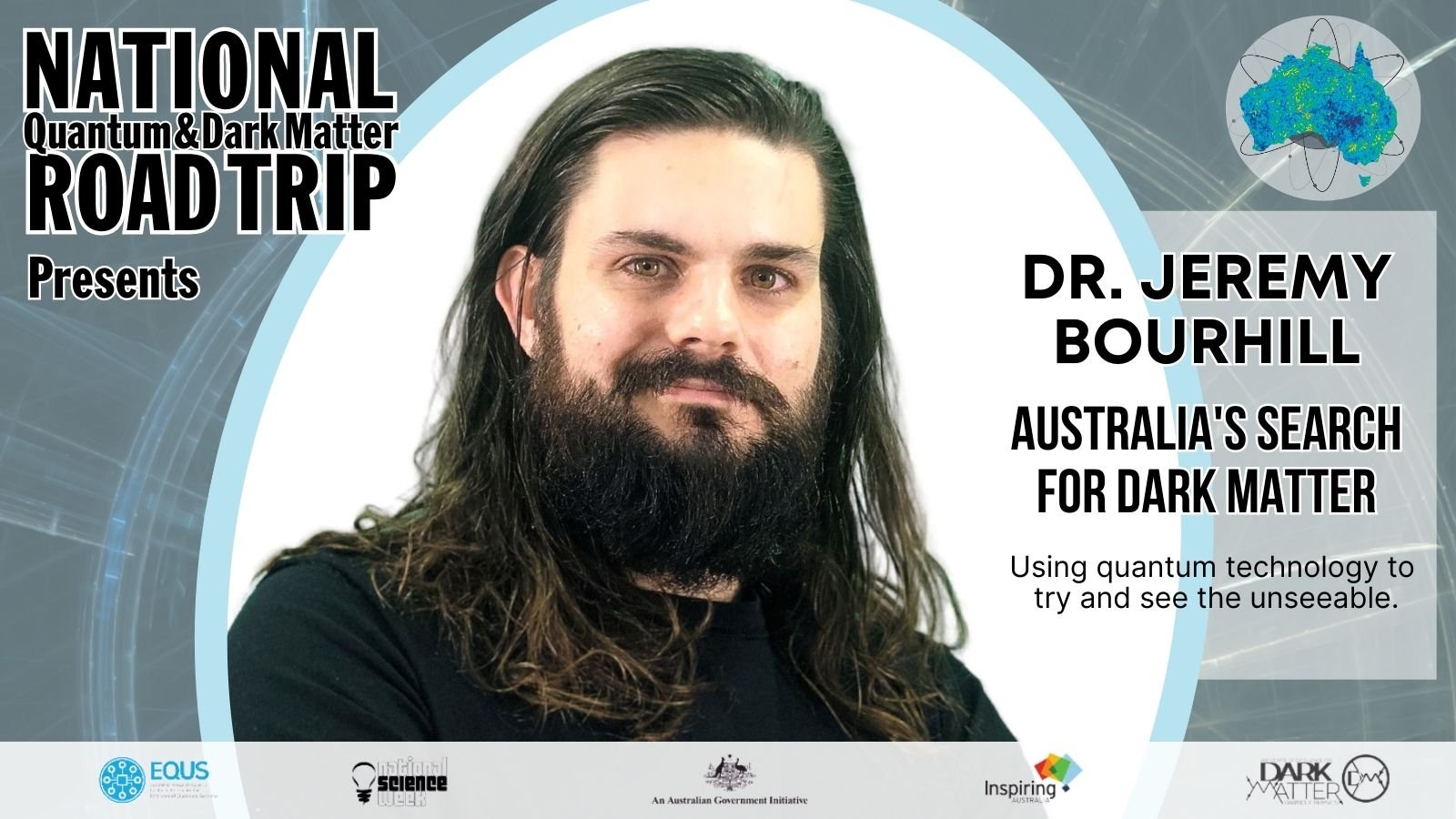
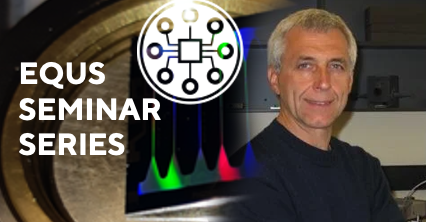
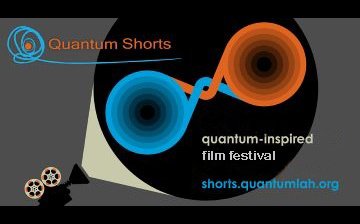
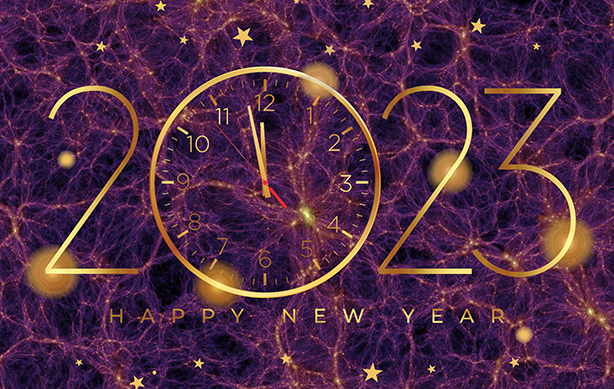
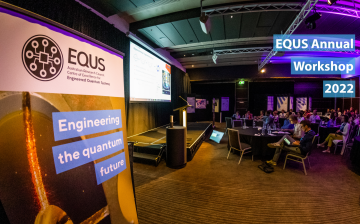
EQUS Annual Workshop 2022
REGISTRATIONS are open for the EQUS Annual Workshop 2022, being held 5-7 December at the Rydges, Newcastle, NSW.
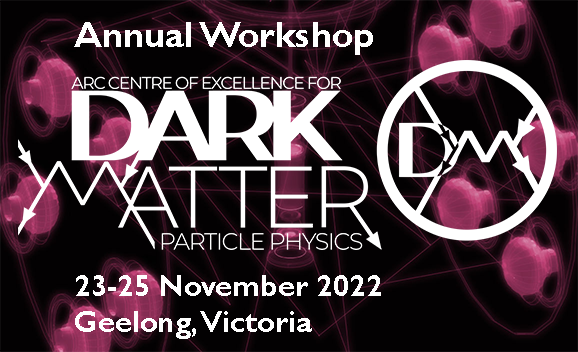
Centre for Dark Matter Particle Physics Annual Workshop 2022
REGISTRATIONS ARE OPEN for the 2022 CDM Annual Workshop. Registration closes 30 September.
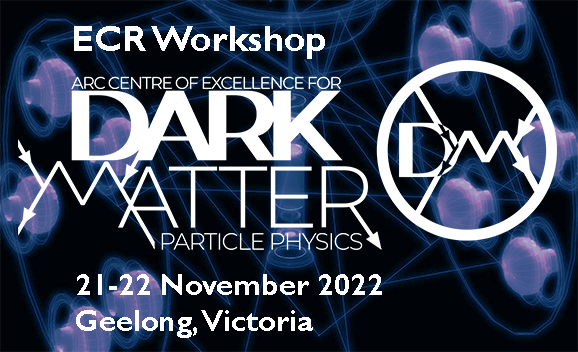
ECR Workshop: Centre for Dark Matter Particle Research
2022 CDM ECR Workshop REGISTRATIONS OPEN until 30 September.
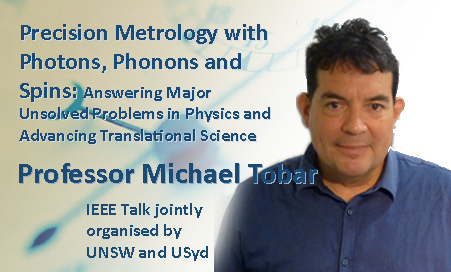
IEEE Talk by Michael Tobar—Precision Metrology with Photons, Phonons and Spins: Answering Major Unsolved Problems in Physics and Advancing Translational Science. Jointly organised by UNSW and USyd
Prof Michael Tobar will give a talk at University of Sydney, Thurs 6 October at 11am Perth Time. Zoom link available.
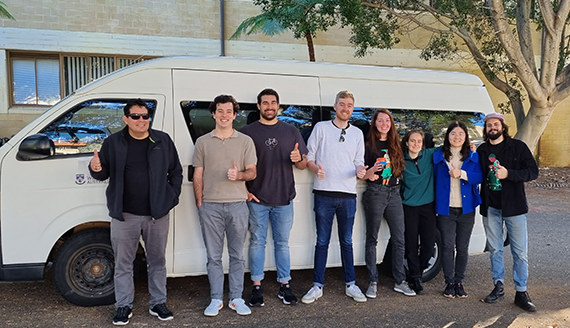
The National Quantum & Dark Matter Road Trip
The National QDM Road Trip—bringing all things quantum and dark matter to schools and communities around Australia.
Visit the QDM Road Trip website.
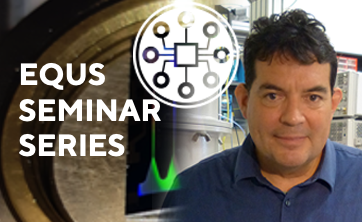
EQUS Seminar Series—Mike Tobar
Precision metrology with photons, phonons and spins: answering major unsolved problems in physics and advancing translational science
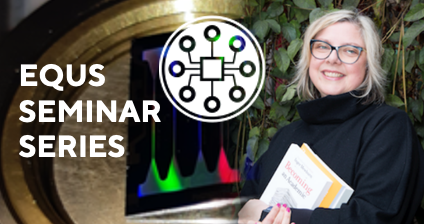
EQUS Seminar Series―Inger Mewburn
So, you’re graduating your PhD in a Pandemic. What next?
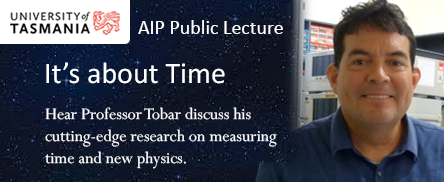
AIP Public Lecture: ”It’s About Time”—Prof Michael Tobar
Hear Professor Michael Tobar discuss his cutting-edge research on measuring time and new physics. Zoom link available.
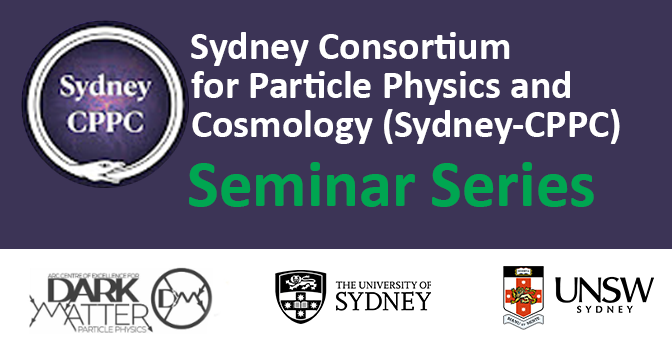
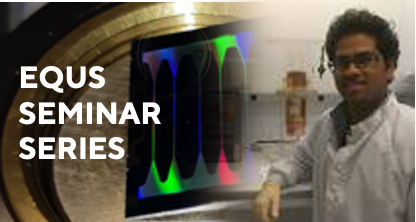
EQUS Seminar Series―Dr Akash V. Dixit
Searching for Dark Matter with Superconducting Qubits

Sydney-CPPC Seminar Series—Yevgeny Stadnik
Yevgeny Stadnik (U.Syd) — Searching for Ultra-Low-Mass Scalar Dark Matter with Precision Low-Energy Experiments
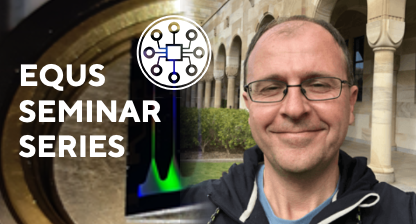
EQUS Seminar Series—Andrew White
Building technical presentations, or, How to keep folk awake during your next talk
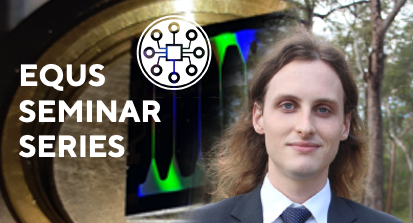
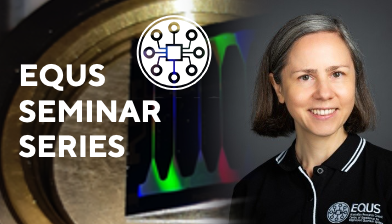
EQUS Seminar Series―Magdalena Zych
Relativistic quantum clocks – from testing quantum features of time and causality to nascent quantum sensors
Abstract: A major goal of modern physics is to understand and test the regime where quantum mechanics and general relativity both play a role. Until recently, new effects of this regime were thought to be relevant only at high energies or in strong gravitational fields – beyond the reach of present day experiments. However, rapid progress in experimental techniques allows for quantum experiments over increasing time and distance scales: In separate experiments quantum coherence has been observed with molecules comprising thousands of atoms, across distances of nearly half-a-meter, and for over 20 seconds. I will discuss how nascent table-top quantum experiments can finally allow us to test the interplay between quantum theory and relativistic gravity, and even gain insights about quantum nature of gravity itself. I will in particular focus on the notions of time and causality which are considered to be key for understanding quantum gravitational regime. The crucial insight is that in general relativity time requires an operational description, for example, associated with an idealised clock, while in quantum physics idealised clocks can be modelled as composite quantum particles (such as atoms, ions or molecules). I will show what new insights into the notion of time and causality arise from studying quantum clocks at the interface with general relativity and how they may be used to probe the interface between quantum and gravitational physics. Finally, I will show that surprisingly even very weak relativistic gravity effects will become relevant for next-generation high-precision quantum technologies such as atomic clocks— and our today’s foundational insights can lead to more accurate quantum technologies of the future.
[1] Zych M, Costa F, Pikovski I and Brukner Cˇ , 2011 Nature Communications 2 505
[2] Zych M, Costa F, Pikovski I, Ralph T C, and Brukner Cˇ , 2012 Class. and Quant. Gravity 29 224010
[3] Pikovski I, Zych M, Costa F, and Brukner Cˇ , 2015 Nature Physics 11 668–672
[4] Zych M, and Brukner Cˇ , 2018 Nature Physics 14, 1027–1031
[5] Altamirano N, et al, 2018 Class. and Quant. Gravity 35 145005
[6] Zych M, Costa F, Pikovski I, and Brukner Cˇ , 2019 Nature Communications 10, 3772.
[7] Loriani et al., 2019 Science Advances 5:eaax8966
[8] Wood C E, and Zych M, 2021 Physical Review Research 3, 013049
See EQUS calendar invite sent Friday 11 Feb, for the link.
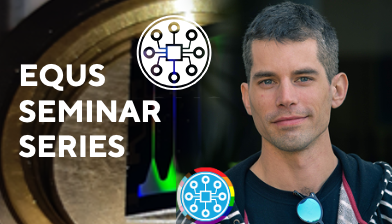
EQUS Seminar Series—Cyril Laplane
Harnessing atomic forces for quantum optomechanics with levitated nanocrystals

EQUS Annual Workshop 2021
The EQUS Annual Workshop for the UWA node will take place at Abbey Beach Resort, Busselton WA.
